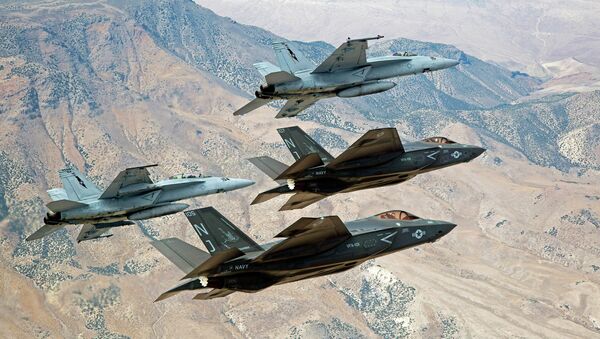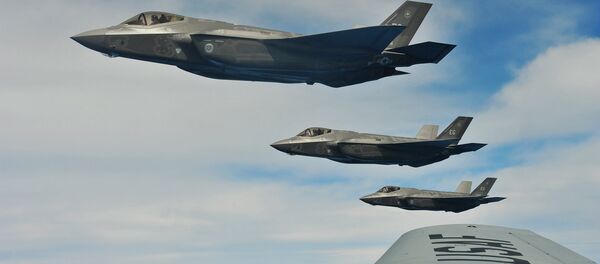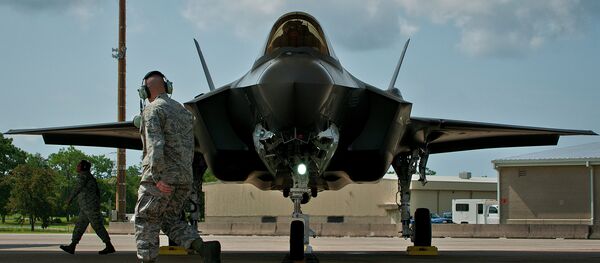In July, the US Marine Corps declared its troubled F-35B fighter jet officially combat ready. The decision was made by General Joseph Dunford, who declared that the aircraft had "achieved initial operational capability."
It turns out that Dunford may have jumped the gun. According to reports that surfaced on Wednesday, the previous announcement was based on carefully orchestrated flight tests. The F-35B is still nowhere near ready for a realistic combat scenario.
It’s the latest setback for the Pentagon’s $400 billion boondoggle. And while criticism is certainly warranted for a government program which has spent massive amounts of taxpayer money with little to show for it, the military would prefer if the media held off on making judgements.
"Let’s delay this discussion for a little while until we see what happens in the world," US Air Force Chief of Staff General Mark Welsh told reporters at the Air Force Association Conference on Tuesday.
"All we do right now is risk damaging a program that’s now gaining some momentum and is about to become operational."
Negative press could affect sales to foreign militaries who have expressed interest. Britain, Turkey, Australia, Norway, the Netherlands, Israel, South Korea, Italy, and Japan have all already placed orders, with Canada and Denmark expected to decide soon.
Welsh went on to say that the program was doing well, despite a number of technical challenges and unexpected cost increases.
Last month, a number of Pentagon officials suggested that the US reconsider how many F-35s to purchase from Lockheed Martin. For some, the original quota seemed too high, given many of the plane’s failings.
The reevaluation was spearheaded by none other than Dunford, the same general who prematurely declared the F-35B successful.
"Given the evolving defense strategy and the latest Defense Planning Guidance, we are presently taking the newest strategic foundation and analyzing whether 2,443 aircraft is the correct number," Dunford wrote in a Congressional testimony.
But according to Air Force Lieutenant General Chris Bogdan, the Pentagon’s F-35 program manager, no such review is underway. Speaking before a separate panel at the AFA this week, Bogdan stressed his determination to provide a fleet of F-35s for the Air Force by next year.
He also indicated that he had no knowledge of any kind of reassessment being conducted by the Pentagon, and that the program would be moving forward as is. Such a review could also potentially damage the aircraft’s reputation.
For better or worse, the F-35 program will be moving forward, at a cost of roughly $80 million per plane.
As long as meddling journalists don’t get in the way, of course.




